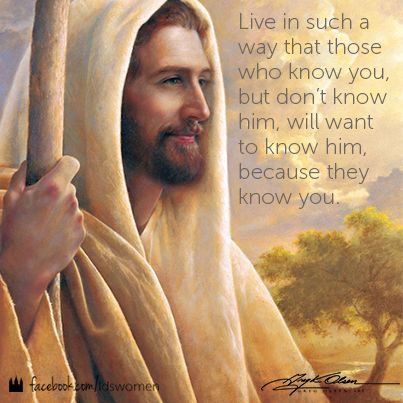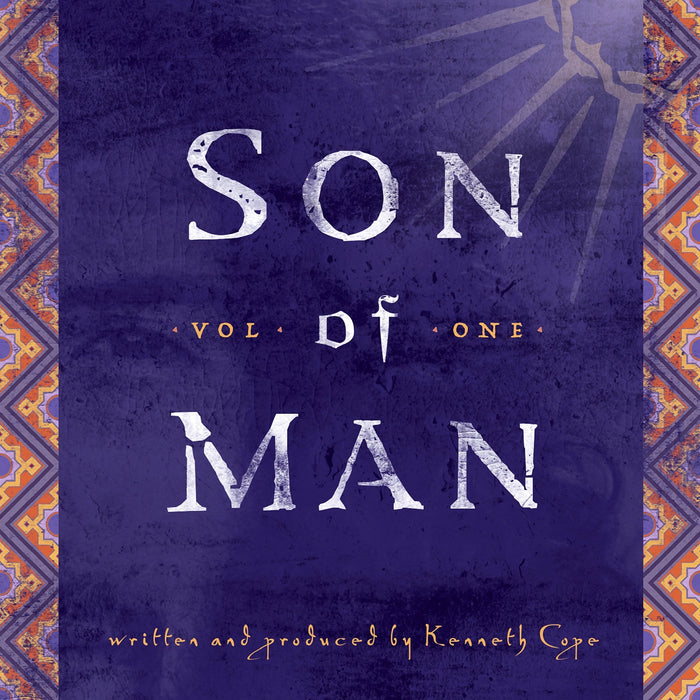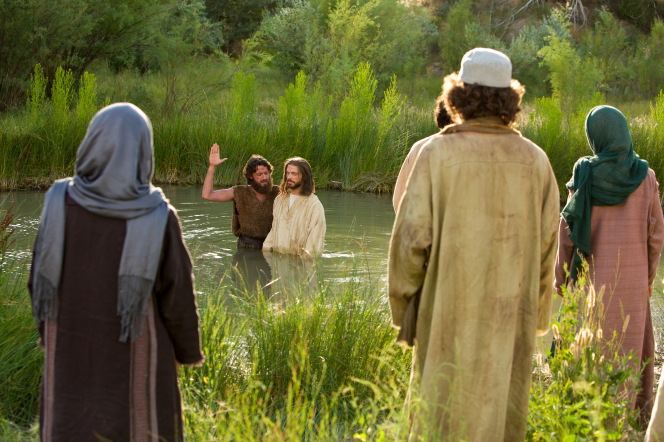Link: "Come, Follow Me" Manual
My dear friend, Margaret, started a study group in our neighborhood to help us be better prepared to teach these wonderful "Come, Follow Me" lessons to our families. It's been so good to be able to share our love for the Savior and to better learn His teachings as we discuss each of the principles. This last week I led the discussion and I wanted to share with you what we talked about - I'd love to hear your ideas and thoughts, too!
Sisters’ Gospel Study
Come, Follow Me
“Prepare Ye the Way of the Lord”
How was last week? Anything you learned that helped you?
So many people shared about what they are doing to be successful with “Come, Follow Me.” Someone mentioned text/email reminders to their children’s assignments. I want to be better at assigning out things to my children. Sharing at dinnertime/lunchtime. Playing games. Having each child share things they’ve learned throughout the week. And many more!
Our family talked about “reflection” and reflecting Christ in our countenances.
This week we’re talking about John the Baptist and his role in preparing the way of the Lord.
Who is John the Baptist?
Bible Dictionary:
Son of Zacharias and Elisabeth, being of priestly descent through both parents. This lineage was essential, since John was the embodiment of the law of Moses, designed to prepare the way for the Messiah and make ready a people to receive Him. He was the outstanding bearer of the Aaronic Priesthood in all history and was entrusted with its most noble mission.
His forthcoming birth and the nature of his ministry were announced to John’s father by the angel Gabriel (Luke 1:5–25). He was a child of promise, with prophecies of his mission having been given by Isaiah (Isa. 40:3) and Malachi (Mal. 3:1; see also 1 Ne. 10:7–10; 2 Ne. 31:4–8). He grew up in the desert until the time arrived for his ministry to prepare the way for the Savior.
The sign of the dove, as an emblem for the Holy Ghost, was a pre-appointed signal by which John knew he was to recognize that he had baptized the Son of God (see John 1:29–34). At the time of the baptism of Jesus, John saw the sign and heard the voice of the Father bearing record that Jesus was the Beloved Son, in whom the Father was well pleased (Matt. 3:13–17). He had preached and baptized for several months before he baptized the Savior and continued to do so afterwards for several months (John 3:23–24).
At least two of those who were later to become members of the Twelve, John and Andrew, were disciples of John before they met Jesus (John 1:35–42). It is probable that others of the Twelve were also tutored by him (Acts 1:21–22). He watched, without feelings of jealousy, the waning of his own influence and the growth of the influence of Jesus (John 3:25–36). He was shut up in prison by order of Herod for criticizing Herod’s unlawful marriage of Herodias (Mark 6:16–29).
While in prison, John sent two of his disciples to inquire of Jesus to reassure their faith. Many have thought this event reflected a lack of confidence in John’s own mind. However, Jesus took the occasion to bear testimony of the great work John had done, emphasizing that he was unwavering and true (see Luke 7:24–28). Jesus also pointed out that John had fulfilled the prophecy of Mal. 3:1. Jesus praised John as a prophet, saying there is none who was greater (Matt. 11:7–11). This greatness consisted of his unique privileges and the quality of his work. He alone was entrusted with the mission of preparing the way and baptizing the Savior of the world. He “did no miracle” (John 10:41) but magnificently fulfilled his assignment in bearing testimony of Jesus Christ. Jesus characterized John as “a burning and a shining light” (John 5:35). After nearly a year in prison, John was beheaded at the instigation of Herodias (Matt. 14:3–12; Mark 6:17).
A vigorous preacher, John taught many principles and doctrines of the gospel and filled his mission in every particular. Latter-day revelation confirms the biblical account and also makes known additional events in the ministry of John. We learn that he was “ordained by an angel,” when he was eight days of age, to overthrow the kingdom of the Jews and to prepare a people for the Lord. We learn also that he was baptized while yet in his childhood (D&C 84:27–28). On May 15, 1829, this same John came to Joseph Smith and Oliver Cowdery near Harmony, Pennsylvania, and ordained these men to the Priesthood of Aaron (D&C 13; 27:7–8; JS—H 1:68–72). Thus his ministry has operated in three dispensations: he was the last of the prophets under the law of Moses, he was the first of the New Testament prophets, and he brought the Aaronic Priesthood to the dispensation of the fulness of times.
We talked about how John the Baptist performed his role much like a mother would - by preparing the way for others to receive fuller Gospel knowledge without wanted praise for himself - we emphasized the what we contribute as mothers is very important and not lost on those we love and serve.
Many of the Jews believed he was the Messiah. But John every time deflected the claim and pointed his followers to the Savior. His actions and testimony preached many things that offered solace and direction.
What are some the teachings he taught?
What are some the teachings he taught?
Luke 3:10-11
10 And the people asked him, saying, What shall we do then?
11 He answereth and saith unto them, He that hath two coats, let him impart to him that hath none; and he that hath meat, let him do likewise. (service)
Luke 3:12-13
12 Then came also publicans to be baptized, and said unto him, Master, what shall we do?
13 And he said unto them, Exact no more than that which is appointed you.
Margaret pointed out that Publicans are tax collectors and could “add more” to the taxes to put in their own pockets. Here is an admonition from John the Baptist not do to so.
Luke 3:14
14 And the soldiers likewise demanded of him, saying, And what shall we do? And he said unto them, Do violence to no man, neither accuse any falsely; and be content with your wages.
Goes on to say:
15-16
15 And as the people were in expectation, and all men mused in their hearts of bJohn, whether he were the Christ, or not;
16 John answered, saying unto them all, I indeed baptize you with water; but one mightier than I cometh, the latchet of whose shoes I am not worthy to unloose: he shall baptize you with the Holy Ghost and with fire:
What are ways we help point people to the Savior?
“Live in such a way that those who know you, but don’t know Christ will want to know Christ, because they know you.”


Now I want to take you back in time to that day through a song about John the Baptist. You’ll hear a few voices, one represents the Jews, his name is Judah and the Jews believed Christ was coming to throw over the current government and be delivered. You’ll hear the voices of Andrew, Peter, and Nathaniel.
PLAY “The Prophet John”
What did you think?
Jesus Christ was baptized “to fulfill all righteousness.” What does that mean?
Brigita shared about how when Jesus was asked about why He needed to be baptized He replied, “Suffer (or allow) it to be so now: for thus it becometh us to fulfil all righteousness. Then he suffered him.” That it is through what we suffer that we can become and fulfill righteousness and become who we are meant to be.
Brigita shared about how when Jesus was asked about why He needed to be baptized He replied, “Suffer (or allow) it to be so now: for thus it becometh us to fulfil all righteousness. Then he suffered him.” That it is through what we suffer that we can become and fulfill righteousness and become who we are meant to be.
When little children are baptized they are just like Jesus, sinless and perfect. I pray we can all become as little children.
In the manual, it points out the similarities between ours and Christ’s baptism…
Do you remember your baptism?
Encouraged to record and write your memories.
PLAY: Behold, the Lamb of God.
Who was Jesus: “the sacrifice of Elohim.”
Last night Sharon Eubank came to speak to the Youth. She shared about Cataracts.
LDS charities helps with vision
4/5 are avoidable - blindness
Cataracts
Doctors are trained and are taught to repair medical equipment
Sin (in the place of cataract)
How do you take care of your spiritual blindness?
Matthew 15:30
Remove cataracts through repentance.
Who loves you more than anyone?
Heavenly Father/Jesus Christ
He paid to give you the chance to have “cataract surgery.”
Elder Renlund: “Heavenly Father’s goal not that you do everything that’s right, but to CHOOSE to do what is right.”
Experts are there to help you, but you have to choose to repair.
The Savior offers us a way to remove our cataracts, to see more clearly through the Atonement of Jesus Christ and Repentance.
Is there anything you would want the Savior to remove in your life?
When I read the heading that “Repentance is a mighty change of heart and mind” - it made me think that Forgiveness is the same way! We can depend on the Lord for His help to forgive.
“Charity never faileth” to be the right answer!
It was shared how childbirth and the pain it brings can help us better understand the Atonement and the sacrifice - that we are partners with the Lord in offering a body to our children and have helped them on their journey to Salvation, and then reconciled through baptism of water and fire. That through the Savior’s blood we are made clean.
When we understand who the Savior is, who our Heavenly Father is, and who the Holy Ghost is, we will be better able to exercise faith in their power to change our lives.
How does the Savior’s baptism teach us about Godhead?
I just finished Reading Saints and here’s a part they shared:
On April 1, William traveled a half a day with Joseph and Orson Hyde, who had recently returned from Jerusalem, to a meeting in a town called Ramus.17 The next morning, William listened as Orson preached that it was the Saints’ privilege to have the Father and Son dwell in their hearts until the Second Coming.18
Later, while they enjoyed a meal at the home of Joseph’s sister Sophronia, Joseph said, “Elder Hyde, I am going to offer some corrections to you.”
“They shall be thankfully received,” Orson replied.
“To say that the Father and the Son dwell in a man’s heart is an old sectarian notion and is not correct,” Joseph said. “We shall see Him as He is. We shall see that He is a man like ourselves.”
Joseph had more to say on the matter when the conference continued later that evening. “The Father has a body of flesh and bones as tangible as man’s, and the Son also,” he taught, “but the Holy Ghost is a personage of spirit.”
John the Baptist was sentenced to death because he spoke out about Herod’s treatment to his wife.
Many still wanted to follow John the Baptist and were afraid this was the end of their chance to have the Kingdom of God established on earth.
PLAY: Go and Follow Jesus
How can we follow and “come and see” the Savior?
Our current prophet, President Nelson, is preparing our hearts to receive the Savior at His Second Coming.
There were so many other good thoughts shared! Becky Barnett asked about baptism in the Old Testament. And Margaret Bennion gave so many personal examples to help us learn these principles.
Baptism in the Old Testament from the Bible Dictionary:
Although there is some obscurity in the Bible as to the antiquity of baptism before the time of Jesus, from latter-day revelation it is clear that Adam was baptized (Moses 6:64–68) and that the patriarchs and prophets since his time have taught the gospel and administered the ordinances that pertain to the gospel. This includes both water baptism and the laying on of hands for the Holy Ghost (Moses 8:23–24)
https://www.lds.org/


Recommendations:
Music excerpts taken from “Son of Man” The Musical by Kenneth Cope - the entire album can be purchased at Jackman Music or on iTunes.
“Faith Is Not Blind” by Bruce C. Hafen & Maren K. Hafen (talks about purpose in suffering)
Deseret Bookshelf App +PLUS
You can access 1000s of Desert Book’s audiobooks or ebooks for $9.99/month - free for the first 30 days. Or they have other free books just for downloading the app.
XO Jenny








No comments:
Post a Comment